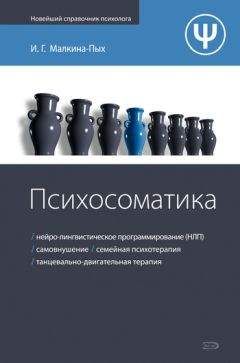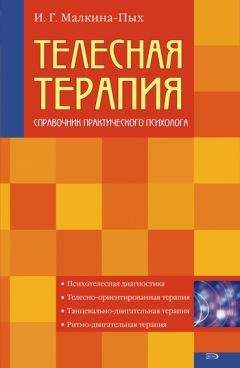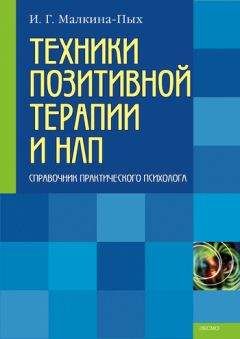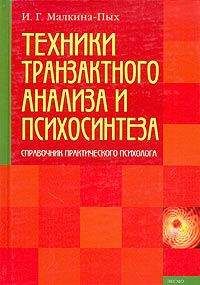Опросник к головным болям и мигрени
1. Вы когда-нибудь размышляли так, что «ломали голову» или «голова трещала»? Можете ли вы вспомнить еще какие-нибудь пословицы и поговорки относительно вашего заболевания? Что это за пословицы?
2. Кто и когда сообщил вам о вашей болезни?
3. Как вы лечились до сих пор? Как вам объясняли ваше заболевание?
4. Занимаетесь ли вы аутогенной тренировкой, постизометрической мышечной релаксацией или аналогичными упражнениями? Придерживаетесь ли вы диеты?
5. Регулярно ли вы принимаете назначенные вам лекарства? Знаете ли вы, как они действуют, что вы можете от них ожидать и какие возможны побочные эффекты?
6. Почему сужаются кровеносные сосуды в голове? Кто-то «перелез через вашу голову»? Вы пытались «прыгнуть выше головы»? Считаете ли вы, что в некоторых делах нужно «ломать голову»? Делали ли вы что-либо «сломя голову»?
7. Считают ли вас «светлой головой» или «тупоголовым»? Часто ли вы кажетесь «безголовым», теряя рациональный контроль над собой?
8. Можете ли вы открыто выражать свои чувства?
9. Является ли для вас общение с друзьями, знакомыми, гостями разгрузкой и расслаблением или вы еще в преддверии встречи начинаете волноваться (будут ли они довольны?… у других стол был богаче… после придется снова все убирать!»).
10. Думаете ли вы о своем будущем чаще пессимистично? Что вы понимаете под выражением «интеллектуальный пессимизм»? Характерно ли для вас «быть всегда в заботах»?
11. Что для вас является смыслом жизни (стимулом, целью, мотивацией, жизненным планом, смыслом болезни и смерти, жизни после смерти)?
12. Можете ли вы воспринимать свое страдание как шанс познать неведомые до сих пор сферы?
СПИСОК ЦИТИРОВАННОЙ И РЕКОМЕНДУЕМОЙ ЛИТЕРАТУРЫ
Abdulwadud O., Abramson M., Forbes A., et al., Attendance at an asthma educational intervention: characteristics of participants and non-participants. – Respir. Med., 1997, Vol.91, p.524–529.
Abramson L., McClelland D.C., Brown D., Kelner S.Jr. Ale-xithymic characteristics and metabolic control in diabetic and healthy adults. J Nerv Ment Dis 1991; 179: 8: 490–494.
Achte K. B., Vankhonen M. L. Psychic factors in cancer. Cancer and psyche, p. 1. Psychiatric Clinic of the University Central Hospital,
Helsinki, 1970.
Alexander F. Psychosomatic medicine: Its principles and applications. – N. Y.: Konald, 1951.
Alexander, F. Analysis of the Therapeutic Factors in Psychoanalytic Treatment. Psychoanalytic Quartrly, 1950.
Andreassi J.L. Psychophysiology: Human Behavior and Physiological Response. Hillsdale, NJ: Lawrence Erlbaum Associates, 1989.
Andrews, J.D.W. The active self in psychotherapy. New York: Gardner, 1990.
Aresin, L. Ober Korrelationen zwischen Personlichkeit, Lebens-geschichte und Herzkrankheit. VEB Fischer, Jena 1960.
Averill J.R. Anger and agression: an essay on emotion. New-York, Springer-Verlag, 1982.
Bach H. Die Ausreifung der menschlichen Agressivitat (Am kli-nischen Beispiel der Tetanic und Schizophrenic). Fortsch. Psychoanal. 3: 147, 1969.
Bach M, Bach D. Predictive value of alexithymia: A prospective study in somatizing patients. Psychother Psychosom 1995: 64, 43–43.
Bach M., Bach D. Alexithymia in somatoform disorder and somatic disease: a comparative study. Psychother Psychosom 1996; 65: 3: 150–152.
Bach M., Bach D., de Zwaan M. Independency of alexithymia and somatization. A factor analytic study. Psychosomatics 1996; 37: 5: 451–458.
Baer P. E. Conflict management in the family. The impact of paternal hypertension. In: Advances in family intervention, assement and theory, vol 4. JAI, Greenwich London, 1983.
Baer P. E., Reed J., Bartlett P. C., Vincent J. P., Williams B. J., Bourianoff G. G. Studies of gaze during induced conflicts in families with a hypertensive father. Psychosom. Med. 1983, 45, 3: 233–242.
Baer P. E., Vincent J. P., Williams B. J., Bourianoff G. G., Bart-lett P. C. Behavioral response to induced conflict in families with a hypertensive father. Hypertension, 1980, 2,1: 70–77.
Balint M. Die Urformen der Liebe und die Technik der Psychoanalyse. Fischer, Frankfurt, 1969.
Baltrusch H.J.F. Psychosomatische Beziehungen bei Krebskranken.
Psychosom. Med., 1969, 7: 196–219.
Baltrusch H.J, Stangel W, Titze I. Stress, cancer and immunity. New developments in biopsychosocial and psychoneuroimmunologic research. Acta Neurologica 13:315–327, 1991.
Barefoot J, Helms M, Mark D, Blumenthal J, Califf R, Haney T, et al. Depression and long-term mortality risk in patients with coronary artery disease. Am J Cardiol 1996;78:613—7.
Barefoot J, Patterson J, Haney T, Catton T, Hickman J, Williams R. Hostility in asymptomatic men with angiographically confirmed coronary artery disease. Am J Cardiol 1994;74:439—42.
Barefoot J.C. Hostility, coping and health. Washington, DC: American Psychological Association 1992.
Barsky A. J., Klerman G. L., Overview: Hypochondriasis, bodily complaints and somatic styles. – Am. J. Psychiatry, 1983, Vol. 140,p. 273–283.
Basler, H.-D., H. Otte, T. Schneller, D. Schwoon: Verhaltensthe-rapie bei psychosomatischen Erkrankungen. Kohlhammer, Stuttgart 1979.
Beck A. Depression: Clinical, experimental and theoretical aspects. New-York: Hoeber, 1967.
Beck D. Die Kurzpsychotherapie. Schweiz. Med. Wochenschr. 98: 1859, 1968.
Beck, A. Cognitive therapy: Basics and beyond. New York: Guilford,
1995.
Becker, H., W. Senf: Praxis der stationaren Psychotherapie. Thieme, Stuttgart 1988 Benedetti, G.: Psychotherapie depressiver Psychosen. In: Psychiatric der Gegenwart. Springer, Berlin 1987 (S. 369–385)
Benedittis de G, Lorenzetti A. The role of stressful life events in the persistence of primary headache: major events vs. daily hassles. Pain 51:35–42, 1992.
Bennedek T. An approach to the study of the diabetic. Psychosom.
Med. 10, 284–292, 1948
Benotsch, E.G., Christensen, A.J., McKelvey, L. Hostility, social support, and ambulatory cardiovascular activity. Journal of Behavioral
Medicine, 1997, 2, 163–176.
Bernstein, P. Theory and methods in dance-movement therapy: A manual for therapists, students, and educators. Dubuque, Iowa: Kendall/Hunt, 1972.
Berntson, G.G., Cacioppo, J.T., Quigley, K.S. Respiratory sinus arrhythmia: Autonomic origins, physiological mechanisms, and psycho-physiological implications. Psychophysiology, 1993, 30(2), 183–196.
Berry E.M., Fried S., Edelstein E.L. Abnormal oral sensory perception in patients with a history of anorexia nervosa and the relationship between physiological and psychological improvement in this disease. Psychother Psychosom 1995;63:32–37.
Beutel, M. Bewaltigungsprozesse bei chronischen Erkrankungen.
Edition Medizin VCH, Weinheim, 1988.
Blanchard E.B., Appelbaum K.A., Guarnieri P., Morrill B., Den-tinger M.P. Five year prospective follow-up on the treatment of chronic headache with biofeedback and/or relaxation. Headache 27:580–583,
1987.
Blanchard E.B., Appelbaum K.A., Radnitz C.L., Morrill B., Mi-chultka D., Kirsch C., Guarnieri P., Hillhouse J., Evans D., Jaccard J., Barron K. A controlled evaluation of thermal biofeedback and thermal biofeedback combined with cognitive therapy in the treatment of vascular headache. J Consult Clin Psychol 58:216–224, 1990.
Blanchard EB, Schwarz SP, Radnitz C. Psychological assessment and treatment of irritable bowel syndrome. Behav Modif11:348–372,1987.
Blanchard EB, Schwarz SP. Adaptation of a multicomponent treatment for irritable bowel syndrome to a small-group format. Biofeed Self-Reg 12:63–69, 1987.
Blatner A. Foundations of psychodrama: History, theory, practice and resources. San Marcos, Tx: San Marcos Treatsent Center, 1985.
Bleuler E. Lehrbuch der Psychiatrie, 13. Aufl. Springer, Berlin, Heidelberg, New Your, 1975.
Bleuler M. Entwicklungslinien psychiatrischer Praxis und Forschung in jungster Zeit. Schweiz Med. Wochenschr. 91: 1549, 1961.
Blohmke M. Psychosoziale Faktoren und Krankheit. Med. Nensch.
Ges. 1: 116–121, 1976.
Blomfield L. B. Rheumatism and emotion. In: Hoff H., Tscha-bitscher H., Krespin-Exner K. (Hrsg.). Meskel und Psyche. Karger,
Basel, New York, S. 142–149, 1964.
Bogutyn T, Kokoszka A, Palczynski J, Holas P: Defence mechanisms in alexithymia. Psychol Rep 1999:84:183–187.
Boiten FA, Frijda NH. Emotions and respiratory patterns: review and critical analysis. Int J Psychophysiol 17:103—28, 1994.
Bonkhorst W. Das psychische Moment bei der Behandlung der Lungentuberkulose. Psyche (Stuttg).: 721, 1950.
Boor de C. Zur Psychosomatik der Allergie, insbesondere des Asthma bronchiale, Bd. 4. Huber & Klett, Bern, Stuttfart, Wien, 1965.
Booth-Kewley, S., Friedman, H. S. Personality, Type A behavior, and coronary heart disease: The role of emotional expression. Journal of Personality and Social Psychology, 53, 783–792, 1987.
Bowlby, J.: Separation anxiety. Int. J. Psycho-Anal. 41, 1960, 89.
Brautigam W., Christian P. Psychosomatische Medizin. Theime,
Stuttgart, 1973.
Brautigam, W. Grundlagen und Erscheinungsweisen des Torticollis spasticus. Nervenarzt 25, 1954, S. 451.
Briddell, D.V., Leublum, S.R. The multimodal treatment ofspastic colotis and incapacitating anxiety: A case study. In A. A. Lazarus (Ed.), Multimodal Behavioral therapy, New York: Springer, 1976.
Brown E. L., Fukuhara J. T., Feiguine R.J. Alexithymic asthmatics: The miscommunication of affective and somatic states. – Psychother Psychosom. 1981, N 36, p. 116–121.
Brown J.C., Rawlinson M. Relinquishing the sick role following open-heart surgery //J. Health Soc. Behav. 1975. V. 16.
Brown, D.P., Fromm, E. Hypnotic treatment ofasthma. Advances.1988, 5(2), 15–27.
Bruch H. The importance ofoverweight. Norton, New York, 1957. Bruch H. Eating disorders. Basic Books, New York, 1973. Buchholz, I. Breathing, voice and movement therapy: Applications to breathing disorders. Biofeedback and Self-Regulation. 1994, 19(2),141–154.
Buddeberg-Fischer B, Klaghofer R, Reed V: Associations between body weight, psychiatric disorders and body image in female adolescents.Psychother Psychosom 1999;68:325–332.
Bulik CM, Sullivan PF, Joice PR: Temperament, character and suicide attempts in anorexia nervosa, bulimia nervosa and major depression. Acta Psychiatr Scand 1999;100:27–32.
Burns, J.W., Katkin, E.S. Psychological, Situational, and Gender Predictors of Cardiovascular Reactivity to Stress: A Multivariate Approach. Journal of Behavioral Medicine, 1993, 16(5), 445–465.
Burns, J.W., Hutt, J., Weidner, G. Effects ofDemand and Decisions Latitude on Cardiovascular Reactivity Among Coronary-Prone Womenand Men. Behavioral Medicine, 1993, 19(3), 122–128.
Buss A.H. The psychology of agression. New York: Willey, 1961. Camilleri M., Choi M.-G. Review article: irritable bowel syndrome.
Aliment Pharmacol Ther 1997; 11: 3—15.
Cannon W. B. Bodily changes in pain, hunger, fear and rage. Appleton: New-York, 1929.
Cash T.F, Deagle E.A: The nature and assessment of body-image disturbances in anorexia nervosa and bulimia nervosa: A meta-analysis.
Int J Eat Disord 1997;22:107–125.
Cash T.F. The treatment of body image disturbance; in Thompson JK (ed): Body Image, Eating Disorders, and Obesity. Washington, American Psychological Association, 1997a, pp 83—107.
Cash, T.F. The Body Image Workbook, New Harbinger Publ.: Oakland 1997b.
Casper R.C: Personality features ofwomen with good outcome from restricting anorexia nervosa. Psychosom Med 1990;52:156–170.
Clarke P.S. Asthma, emotions, hyperventilation and allergy. Abstract. Int. Congr. Allerg. Clin. Immun., 1982—790P.
Clauser G. Psychotherapie-Fibel. Thieme, Stuttgart, 1967.
Cleveland S. E., Fisher S., Body image and personality, prima ed. (1958), D. Van Nostrand Company, Princeton, New Jersey; seconda ed. (1968) Dover, New York.
Cobb S. Contained hostility in rheumatoid arthritis. Arthritits Rheum., 1959, 2: 419. Cobb S. Hostility and its control in rheumatoid disease. Arthritis Rheum. 1962, 5: 290.
Cohen S, Williamson GM. Stress and infectious disease in humans.
PsycholBull 109:5—24, 1991.
Cohen, S., Kaplan, J.R., Manuck, S.B. Social support and coronary heart disease. Underlying psychological and biological mechanisms. In: S.A. Shumaker, S.M. Czajkowski (eds.) Social support and cardiovascular disease, Plenum: New-York, 1994.
Condrau G. Psychosomatik der Frauenheilkunde. Huber, Bern,
Stuttgart, Wien, 1965.
Contrada, R.J. Personality and anger in cardiovascular disease: Toward a psychological model. En A.W. Siegman y T.W. Smith (Eds.), Anger, hostility and the heart (pp.149–171). Hillsdale: Lawrence Erl-baum Associates, 1994.
Costa P., McCrae F. Multiple uses for longitudinal personality data // European Journal of Personality, 1992. Vol. 6. P. 85—102.
Cottington, E., Matthews, K., Talbott, E., Kuller, L. Occupational stress, suppresssed anger, and hypertension. Psychosomatic Medicine,
1986, 48, 249–259.
Creer T. Psychological factors and death from asthma: creation and critique of a myth. – J. Asthma, 1986, Vol. 23, p. 261–269.
Creer, T. The application of behavioral procedures to childhood asthma: Current and future perspectives. Patient Eecucation & Counseling, 1991, 17(1), 9—22.
Cremerius J. Die Prognose funktioneller Syndrome. Enke, Stuttgart,
1968.
Dembroski T.M., Costa P.T.: Coronary prone behavior: Components of the Type A pattern and hostility. Special Issue: Personality
and physical health. J. Pers. 55: 211–235, 1987.
Dembroski, T.M., MacDougall, J.M. Behavioral and psychophy-siological perspectives on coronary-prone behavior. In T.M. Dembroski, T.H. Schmidt, G. Blumchen(Eds.), Biobehavioral bases of coronary heart disease. New York: Karger, 1983.
Dembroski, T.M., MacDougall, J.M., Costa, P.T., Grandits, G.A. Components of hostility as predictors of sudden death and myocardial infarction in the Multiple Risk Factor Intervention Trial. Psychosomatic
Medicine, 1989, 51, 514–522.
Dembroski, T.M., MacDougall, J.M., Williams, R.B., Haney, T.L.,
Blumenthal, J.A. Components of Type-A, hostility, and anger-in: Relationship to angiographic findings. Psychosomatic Medicine, 1985, 47,





